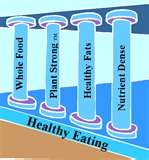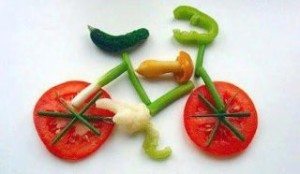Ilana Katz MS, RD, CSSD
Food is the best medicine, something I have made my followers note long before I came across a famous quote from Hippocrates for the first time: “Let food be thy medicine, and medicine be thy food.” Therefore, I too could have had a role in the history of westernized medicine, (chuckle). Well seriously, I am constantly harping on the fact that the ideal way to get most needed nutrients is from foods. Naturally occurring nutrients are more compatible and thus more bioavailable than their supplement counterparts. Eating a rainbow a day, keeps the doctor away… yes another ilanological saying.
Don’t get me wrong, there may be a place for supplementation in someone’s diet, and I will get to this shortly, but my point is: Nowadays, everything from bottled water to basic milk and bread seems to have souped-up levels of vitamins and minerals added. This is often a bureaucratic or political decision poured into our food source which will supposedly cover nutritional needs. And if that is not the case, then it is often a marketing ploy that banks on the gullibility of the masses, especially if their diets are less than stellar.
The burning question thus trickles to the forefront: “So is there a possibility then on overdosing on vitamins and minerals, especially when the food source may be beyond individual control?” There are a couple of pointers to highlight with this in mind: One – some people believe that if a little provides benefit, then more provides a greater benefit, especially when it is taken in pill form. Two – can our food source be killing us?
Let me start by saying, most of us, even the gullible ones, are not in danger, since it is unlikely that we are overdosing. Even if you may be consuming fortified cereal for breakfast, have a protein packed meal replacement with extra vitamins and minerals as a snack, enjoy some enriched pasta for dinner, and still taking a daily multivitamin you are safe. Yes you may very well be over the daily recommendations of various nutrients, but that will not harm you.
However there is such a thing as megadoses. This means one that is routinely taking large doses, particularly in supplemental form, believing that more is better. Routine megadosing can have its own set of consequences. Some examples include: too much Vitamin C or zinc could cause nausea, diarrhea, and stomach cramps. Surplus vitamin A could induce nausea, blurry vision and dizziness. Too much selenium could lead to hair loss, flaking skin, gastrointestinal upset, fatigue, and even nerve damage. Too much calcium can cause kidney stones and with that megadoses of vitamin D can calcify bones. With this said, it is rather difficult to get these dangerous doses from food alone.
This leads one to ponder whether you should or should not to take daily vitamin supplements at all or even why so many people do in fact take them. A recent study was published to answer this question. Results showed that 45 percent of those taking vitamins do so because they believe they will improve their health. Other reasons were to maintain their health (33 percent), improve bone health (25 percent), and to get more energy (11 percent).
Here are some observations that may help you to make that personal choice:
- There is general agreement that women of reproductive age should take folic acid supplements to help prevent spinal or neural tube defects. Some studies have also showed that folic acid taken during pregnancy may reduce the risk of autism in the child.
- Taking vitamin D and calcium supplements have long been recommended for older women in order to help prevent bone fractures. However, peer reviewed research has questioned the that the benefits of already healthy women taking calcium and vitamin D are overstated. Furthermore doses not required may even be hazardous to health, increasing the risk of developing kidney stones.
- Fifty-five to 60 percent of all women over age 60 are presently taking vitamin D and calcium. Many of them have osteopenia or osteoporosis, but many do not.
In Summary:
Vitamins are not a medical panacea except in certain, very specific situations. For most people, when it comes to vitamins, the reasoning, taking more is better, can lead them into a host of medical problems. There is also no need to fear taking too much if these basic directions are followed. Most multivitamins have a wide margin of safety that even when you are combining them with fortified foods will not cause you to keel over.
If you are one of those that requires supplements for various reasons (eg. Diet is not stellar, certain dysfunctions or allergies, immunity needs boosting) then some pointers of note may include:
Whole food supplements such as juice plus, are more bioavailable for absorption than vitamin and mineral supplements, therefore if it is of need to supplement your food source, consider the whole foods form.
When it comes to vitamins and minerals, more is not necessarily better. In fact more not only delineates the benefits but increases harm.
Check the dosages. Supplementation should be no more than the daily value. This information is readily available on the labels. There is no need or benefit to take more.
Uncertainty can always be confirmed with a registered dietitian or your physician. Tell them about any supplements you may be taking, including vitamins and minerals, and their doses. The professionals will ensure you keep it in the safe range.
Individuals who take megadoses of vitamins are at risk of developing various types of medical maladies. However, most people who take just one multivitamin a day are safe, the only risk for those who do not necessarily require multivitamins or are taking one of poor quality (not whole food) is expensive pee.



